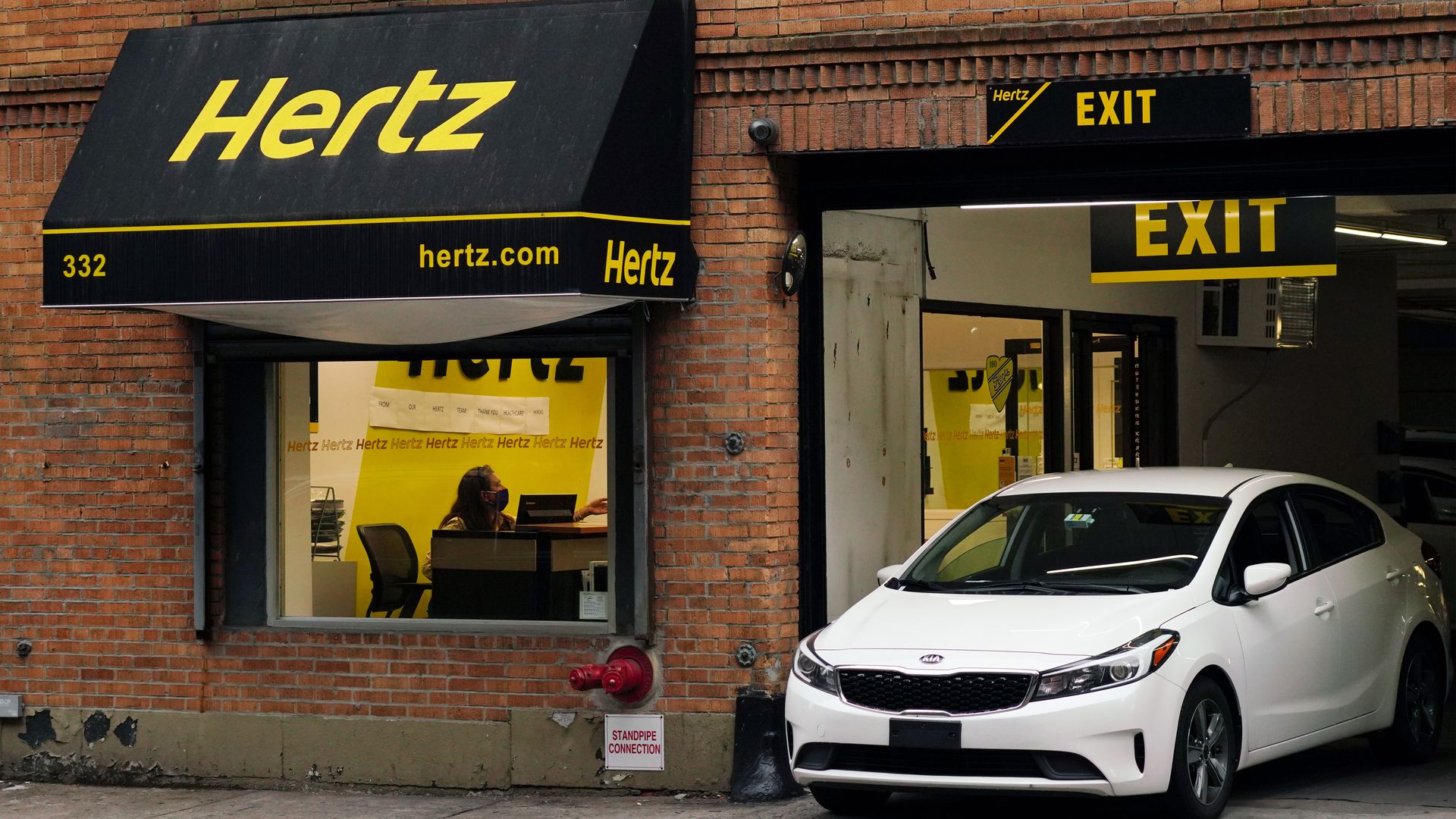Hertz pulls back $500 million stock offering after SEC wades in
Add Axios as your preferred source to
see more of our stories on Google.

Photo: Cindy Ord/Getty Images
"They walked all the way up to the edge — and stopped." That's the verdict of Thomas Gorman, a partner at the law firm Dorsey Whitney and an expert on SEC enforcement, regarding Hertz's attempted sale of $500 million in new equity.
Driving the news: Hertz issued its prospectus on Monday, and then followed up on Wednesday with an update essentially saying "eh, never mind" after SEC chairman Jay Clayton made some pointed comments about the offering on CNBC.
The backdrop: Hertz is the 48th most popular stock among Robinhood investors, ranking right between UCO and GUSH, which are both vehicles for making leveraged bets on the oil industry. Because the company is in bankruptcy, its stock will almost certainly end up worthless — but shareholders will see exciting volatility on the way to zero.
- That's made Hertz stock an excellent gambling vehicle.
What they're saying: Here's just one of the risk factors that Hertz put in its prospectus.
"As previously disclosed, on May 22, 2020, we filed voluntary petitions under Chapter 11 of the Bankruptcy Code... The price of our common stock has been volatile following the commencement of the Chapter 11 Cases and may decrease in value or become worthless.
"Accordingly, any trading in our common stock during the pendency of our Chapter 11 Cases is highly speculative and poses substantial risks to purchasers of our common stock... There is a significant risk that the holders of our common stock, including purchasers in this offering, will receive no recovery under the Chapter 11 Cases and that our common stock will be worthless."
Between the lines: More than 500 million shares of Hertz traded hands on June 8 alone, when the stock hit an intraday high of $6.25 per share. Given that every trade has a buyer and a seller, it's easy to see why Hertz would want to be the seller in some of these trades.
- The stock offering promised free no-strings-attached capital for Hertz that would doubtless have been very helpful in terms of getting through bankruptcy.
The bottom line: Clayton has focused on small investors since his arrival at the SEC. It's easy to see why his staff would have had serious problems with this share issuance.
- While the SEC can't stop stock-market speculators trading the stock to each other on the secondary market, it can — and did — effectively prevent the sophisticated financiers who currently control Hertz from issuing new shares to the gamblers. Hertz might not like it, but even in bankruptcy, it doesn't want to end up afoul of the SEC.
Go deeper: Why Hertz crashed
